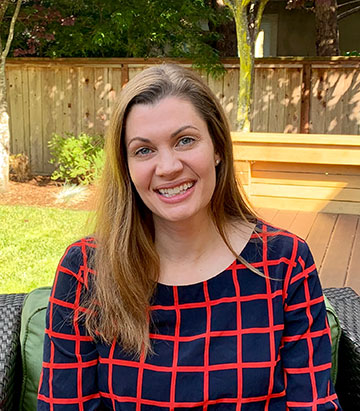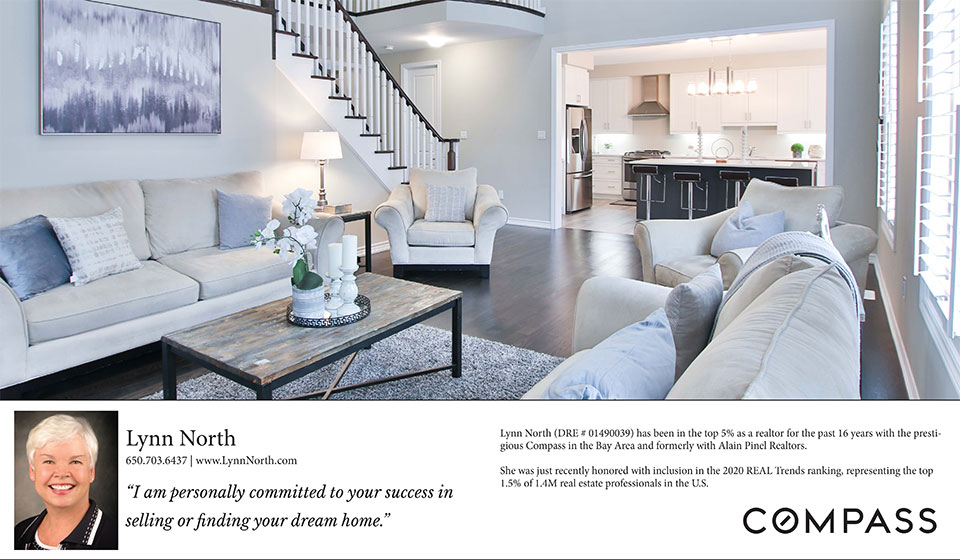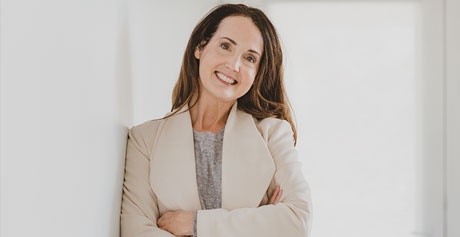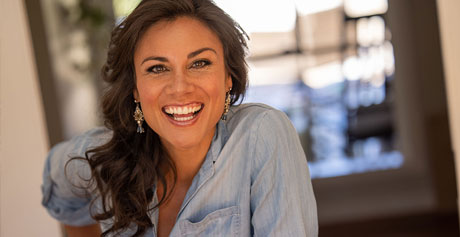She is on a Mission to Change the Way We Think About Life After Breast Cancer. Meet Dr. Anne Peled, a Board-Certified Plastic Surgeon & Breast Cancer Surgeon
 Anne Peled, MD, is a board-certified plastic surgeon and breast cancer surgeon in California and the co-director of Sutter Health California Pacific Medical Center Breast Cancer Program. Dr. Peled is on a mission to change the way we think about life after breast cancer, particularly as it relates to the often-overlooked issue of sensation loss.
Anne Peled, MD, is a board-certified plastic surgeon and breast cancer surgeon in California and the co-director of Sutter Health California Pacific Medical Center Breast Cancer Program. Dr. Peled is on a mission to change the way we think about life after breast cancer, particularly as it relates to the often-overlooked issue of sensation loss.
Dr. Peled graduated with a Bachelor of Arts degree with honors from Amherst College. She then attended Harvard Medical School, during which time she received a prestigious Doris Duke Clinical Research Fellowship to pursue research in breast reconstruction and breast cancer-related lymphedema. Dr. Peled then moved to San Francisco for general surgery and plastic surgery residency training at the University of California, San Francisco. During her residency, she completed a two-year postdoctoral research fellowship focused on breast reconstruction outcomes and novel surgical techniques for managing breast cancer. She received multiple research awards during her fellowship, including Best Resident Research Paper at the annual California Society of Plastic Surgeons scientific meeting.
Following residency, Dr. Peled continued her training at UCSF with a clinical instructorship in breast oncologic surgery and reconstructive microsurgery. This additional training provided her the unique skills to be able to perform both the oncologic and reconstructive procedures that often make up the surgical treatment for breast cancer. Dr. Peled is actively involved in clinical research and currently serves as the Principal Investigator on several research projects related to quality-of-life and surgical outcomes for breast cancer patients.
Q: Can you tell us about your experience with treating breast cancer patients?
AP: As a breast cancer and reconstruction surgeon, and survivor, I understand how overwhelming a breast cancer diagnosis can be, especially with so many treatment options available. My priority is always to get the cancer out and ensure chances of it coming back are as low as possible through a personalized, thoughtful approach to care. However, I also speak with my patients about the potential emotional and psychological trauma that can come along with treatment and offer them surgical options that help minimize negative side effects.
Q: How did you feel when you were diagnosed with breast cancer yourself?
AP: Being young, without a family history of breast cancer, and what I considered to be very healthy, when I discovered a lump during a routine self-exam, I just assumed it was going to be benign. When the results of my biopsy came back and showed breast cancer, I was shocked. However, after the initial shock, I tried to remind myself of the things I tell my patients after finding out they have breast cancer. First, that most forms of breast cancer nowadays are essentially curable as technologies and treatments have improved and advanced. And second, that I had time to really consider all of my options before making a decision rather than just rush in to get the cancer out quickly without understanding the potential implications of my choices. I feel fortunate that I found the cancer early, when it was Stage I, and that I was able to have access to exceptional care throughout the process.
Q: Did having breast cancer impact your work?
AP: As a patient, survival was my top priority, but as a surgeon, I knew it was also important to consider the emotional and psychological trauma, including potential changes in body image, intimacy, and sense of self, that could occur after treatment. Going through the decision-making process firsthand made me even more committed to making sure people with breast cancer understand all of their options and make informed decisions. I was lucky enough to have a team who listened to my goals and offered me advanced surgical techniques that actually left me looking and feeling better than I did before surgery. I want all women to know they have options like I did, such as hidden scar surgery or sensation restoring techniques. I now advocate for and teach other surgeons about nerve preserving breast cancer surgeries to help restore post-mastectomy sensation loss and allow women to feel like themselves again after surgery and move past their cancer treatment. After my breast cancer diagnosis, I learned that self-advocacy is key. I strongly believe if more women understand their treatment options and ask for what’s important to them, more surgeons will become trained in advanced surgical techniques like this.
Q: What do you mean when you say “post-mastectomy sensation loss” and how does it impact women in the Bay Area?
AP: Women have sensory nerves that run from their breasts to their brains, allowing them to feel touch, temperature, pleasure, and even pain. But, traditionally these nerves were cut during a mastectomy as part of removal of the breast tissue. If the nerves aren’t carefully preserved during a mastectomy and/or repaired during breast reconstruction, they no longer send signals, resulting in numbness in the breast area that can extend from a woman’s collarbone to her belly button.
Women with sensation loss may not be able to feel a hug from their children, intimate touch or even a hot shower. Loss of sensation after mastectomy can significantly impact body image, psychological health, overall quality of life and may even increase risk of injury. I want Bay Area women considering a mastectomy for breast cancer treatment or risk-reducing surgery if they have a genetic mutation or strong family history to know that they don’t have to live life after surgery feeling numb.

Q: How are you restoring sensation in breast cancer patients?
AP: It is possible for women to feel like themselves again after breast cancer with careful consideration for nerves during breast cancer surgery. This is why I offer sensation-preserving mastectomies and a nerve reconstruction approach called Resensation in my practice. Resensation is a pioneering surgical technique that has the potential to restore sensation to the breast area as part of breast reconstruction by using graft nerve tissue to reconnect nerves in a woman’s chest to her reconstructed breast. Over time, the patient’s own nerve fibers regenerate through the graft, with the potential to gradually restore sensation to the breast and nipple skin.
Q: How is this technique you offer different than others?
AP: Historically, the primary focus of breast reconstruction has been helping women look like they did before surgery, with less of a focus on how they will feel. With sensation-preserving mastectomies and repairing sensory nerves using the Resensation technique, women can look and feel like themselves again, which is truly transformative for women who would otherwise have to cope with a daily reminder of their breast cancer with permanent chest numbness.
Q: Can you tell us how you manage your work life balance?
AP: Most days I set a goal for myself of just three things that I can easily wrap my head around: taking good care of my patients; raising healthy, happy kids who know how much I love them; and prioritizing my health. Keeping these goals in mind every day gives me something I know I can achieve and feel successful about at the end of the day. It also gives me the space to feel good and not guilty about scheduling workouts or calling patients on my drive home from work or spending an entire evening snuggling with my kids on the couch. I am also incredibly lucky to have a partner who is also a surgeon and truly understands the demands of my job but is also completely committed to sharing responsibilities at home and with our kids – I really couldn’t balance everything without him.
Q: What’s one lesson you’ve learned in your career that you can share with our audience?
AP: I started my breast surgery fellowship after having had three kids in surgery residency (my twins were only four months old at the start of my fellowship) and I put so much pressure on myself to be perfect at the time because I thought I needed that to get my dream job in academic medicine. But there wasn’t any way I was going to be perfect, because I was still in the middle of training and managing so much with taking care of my kids, and I spent the year feeling like I was failing at work and failing at home. When I found out that my academic job had fallen through in spite of all of the stress I had gone through and spending most of my fellowship incredibly unhappy, I was devastated. But I was able to pivot and start my own private practice and have taken with me so much of what I learned from that time to make my life better, both at work and at home. Now when I take on a new work project or challenge that I know is going to add stress and take me away from my family, I make sure it is on my own terms and that I am consciously choosing it and understanding the implications and how it will help me grow professionally. I’m also less afraid of failing because I know that what felt like a massive failure at the time has allowed me so much more success and happiness than I ever would have had in the job I thought I needed to have after fellowship. Having confidence that things that seem like failures at the time can lead to better and more fulfilling opportunities allows me to take risks I might never have taken without that experience.
Q: What are some of the challenges you feel women face today?
AP: I think as women we’re finally feeling like our voices are being heard and we have the support of strong communities of women committed to raising each other up. However, for many of us, we still don’t have enough female role models or people who look like us or have lives like us in the positions we hope to achieve. This is definitely getting better over time, though, and I’m so hopeful that the next generation of girls and young women will have a diverse group of women across fields to look up to and aspire to be like or ideally even surpass.
Q: What's your advice for women in male-dominated fields?
AP: Looking around when you’re considering a certain field and not seeing many people who look like you in that field takes a lot of inner strength and confidence that you can really contribute something to it. Finding other women going through something similar, even in totally different fields, gives you a community and support when you need additional strength to get through the specific types of challenges that come up as a woman in a male-dominated field. I also often remind myself that as a woman, I bring a different perspective to my work, which I believe for me (particularly with nearly all female patients) better connects me to my colleagues and patients. I also recommend looking for supportive male mentors and allies as well – while they may not be able to understand all of your challenges, they can help you navigate them and make your path smoother.
Q: What advice would you give to young women who want to pursue a career as a doctor?
AP: I honestly feel incredibly lucky every single day to have a job that I love so much and that is so fulfilling, so my first piece of advice is that the long road of medical training is worth it! There are so many more women in medicine now, particularly in medical school and training, and one of the many positive effects of this is that programs are more thoughtfully considering how to support doctors’ lives outside of medicine. It is now completely possible to have a successful career in medicine and still have a happy, fulfilling personal life as well.
Five Things About Dr. Anne Peled
1. What celebrity would you like to meet at Starbucks for a cup of coffee?
Michelle Obama. She truly embodies grace, strength, and compassion and is such an amazing role model – I’d bring my daughters with me to meet her!
2. Favorite city?
Madrid – I love the energy of the city, it’s a perfect balance of historical charm and beauty mixed with modern, dynamic excitement.
3. If you could go back in time to change one thing, what would it be?
More travel earlier on, before I had kids and started my career.
4. Who is your favorite author?
I majored in Spanish in college and still re-read some of my favorites from that time, including Isabel Allende and Carlos Fuentes.
5. Would you rather vacation in Hawaii or Alaska, and why?
Definitely Hawaii. Every day in Hawaii is pretty much my dream vacation day – start off with amazing coffee, get in a run on the beach, have an outdoor adventure in stunning scenery, more beach time, and go to sleep with the sounds of the ocean.

